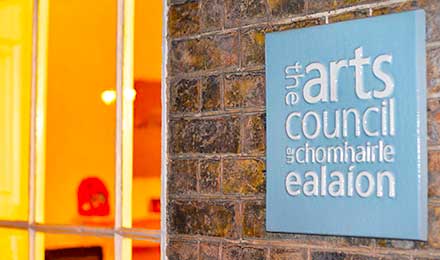Funding for the Arts has increased rapidly since the pandemic. In the 2019 Budget, the government allocated €75 million to the Arts Council. This year’s budget is almost double that at €134 million. So where is this recent injection of funding being directed and how does it benefit upcoming writers trying to break into the industry?
Establishing yourself as a writer is no easy task. For most, writing full-time with no other consistent income is not an option. The large majority of artists take on jobs completely unrelated to the Arts in order to find a means to an end, but when asked, ‘what do you do?’ respond ‘I’m a writer’. Writing consistently when much of your time and energy is devoted to work devoid of any benefit other than a source of income can prove to be not only difficult but also disheartening. Until a writer is paid for their work in a journal or through an advance on a publication, much of it remains financially valueless. As a result, we lose many talented writers to more stable careers and, for those that remain, opportunities to dedicate themselves wholly to their craft are few and far between.
Arts Council funding, however, is there to tackle this vicious cycle. In 2021, the Arts Council announced the English Language Literature Bursary Award – the first of its kind to be introduced in Ireland. The aim of the award is to “provide writers and picture book artists with the time and resources to think, research, reflect, create and write”. The first roll-out of the award favoured mid-career professional writers with a “demonstrable publishing track record, having published at least one full collection, novel or picture book with an independent, recognised publisher”. In conjunction with the Bursary, the Arts Council also announced the Agility Award. While sharing the same objectives to aid artists in developing their practice, work and skills, the Agility Award differed somewhat in being targeted towards writers at any stage of their career, with the Council stating that they were “particularly interested in applications from more emerging literature artists”. The difference between the two lay in the fixed amount they offered: the Agility Award was capped at €5,000 per artist while the Bursary offered up to €20,000 per annum.
With such a successful first round of both awards, they were continued into this year and, despite the disappointment expressed by Prof. Kevin Rafter, Chair of the Arts Council, that the announced budget was on the “lower end of what had been sought to address increased costs in the arts sector”, the €134 million announced was enough for the second round of the Bursary award to be extended beyond the initial eligibility requirements. As of June 2023, the roll-out of the award was extended to include any professional writer, with a concerted effort on the part of the Council to “support excellence for the widest population”.
By extending access to the Bursary, Round 2 provided emerging writers with growing track records an opportunity to ‘buy time’ and focus their energies on progressing even if they had not previously been earning an income continuously or exclusively from their craft. Unlike Round 1, applicants were not required to have had a collection or novel published. Instead, the adjudicating committee would look at their track record for a proven sustained engagement with creative writing (i.e. stories, essays and poems published in journals) to identify those applicants who they believed could benefit most from the Bursary.
Recipients received either €10,000, €15,000 or €20,000 depending on the scale of their proposal and the amount of time they declared they would like to devote to their project. The amount received was intended to grant time to the artist and to be used towards any other costs “intrinsic to supporting the development of the artist’s practice” which could include fees for mentors or collaborators or materials needed. Applicants were assessed based on three criteria: artistic quality, how they meet the objectives and priorities of the award and feasibility. The Arts Council received a total of 1,159 applications and has offered 537 awards, many of which went to artists in the early stages of their careers. Following the announcement, Arts Council Director Maureen Kennelly highlighted the importance of the award in granting artists the resources necessary for development: “[t]here is no such thing as ‘overnight success’ in the arts. That is why it is crucial for the Arts Council to support artists to buy space and time to develop their practice”.
With Round 3 of the Bursary expected to be rolled out next summer, the Arts Council have expressed their hopes to extend the award to all artists who meet the requirements in need of funding. This considerable expansion of the award would mean that those who are hoping to pursue a career in the Arts could do so with financial security and support. By guaranteeing Irish authors an income for their work, the government would be providing a basis for artists to wholly pursue their passion with time and confidence. It would provide writers with tangible proof that a career in the Arts is not solely an aspirational dream but realistic. For graduates, it opens doors to the possibility of building a career within the subject they studied. The potential of these resources cannot be understated. However, this expansion requires additional budget funding and so will prove as a crucial test of the government’s promise to “place the arts at the heart of Irish life.”








